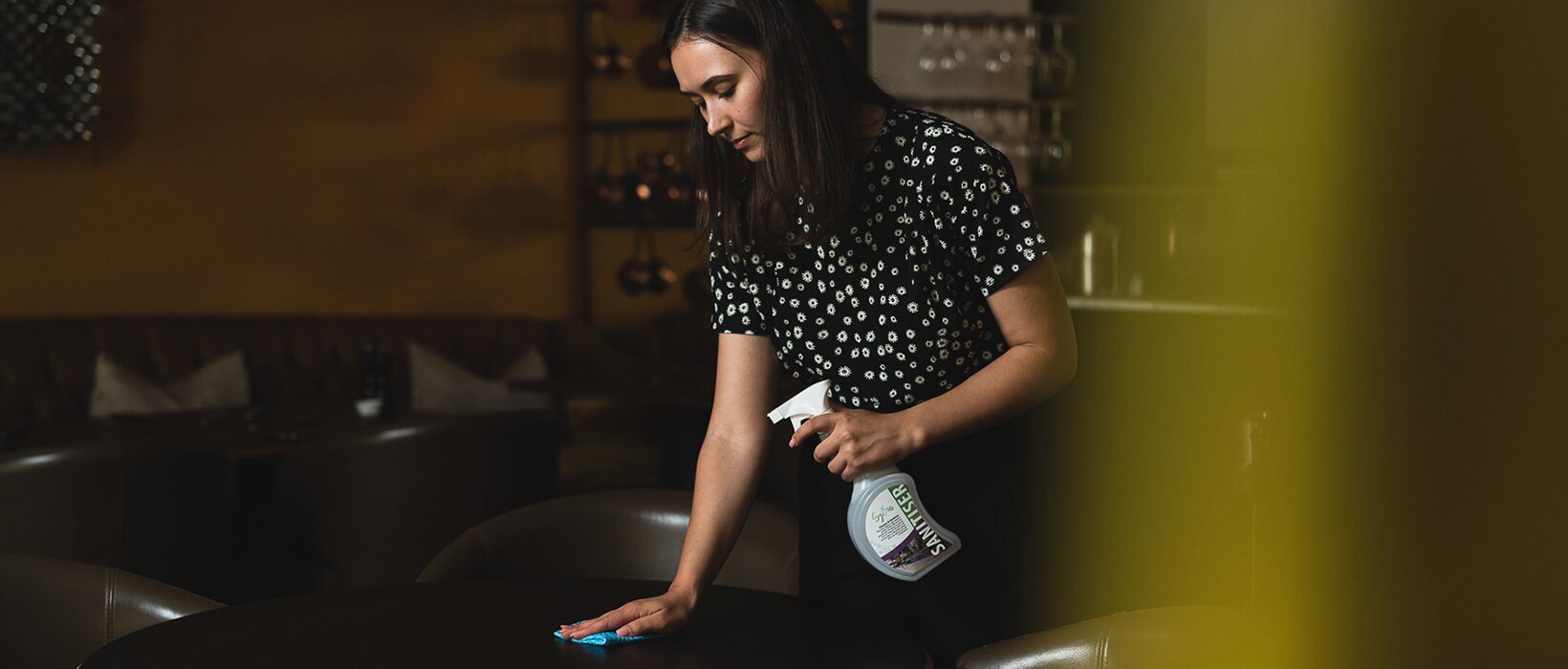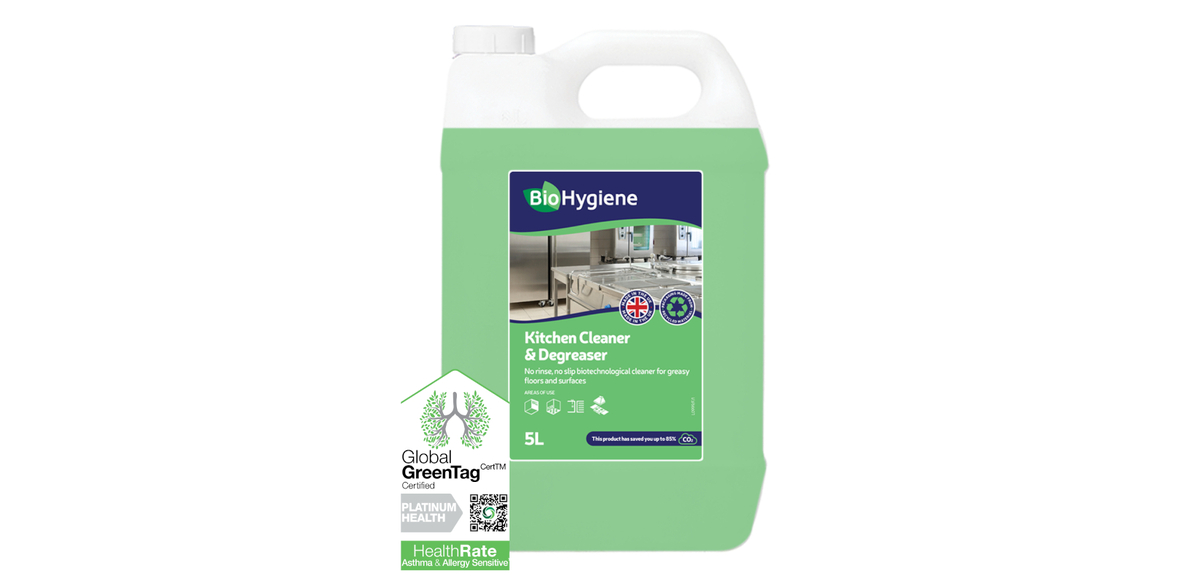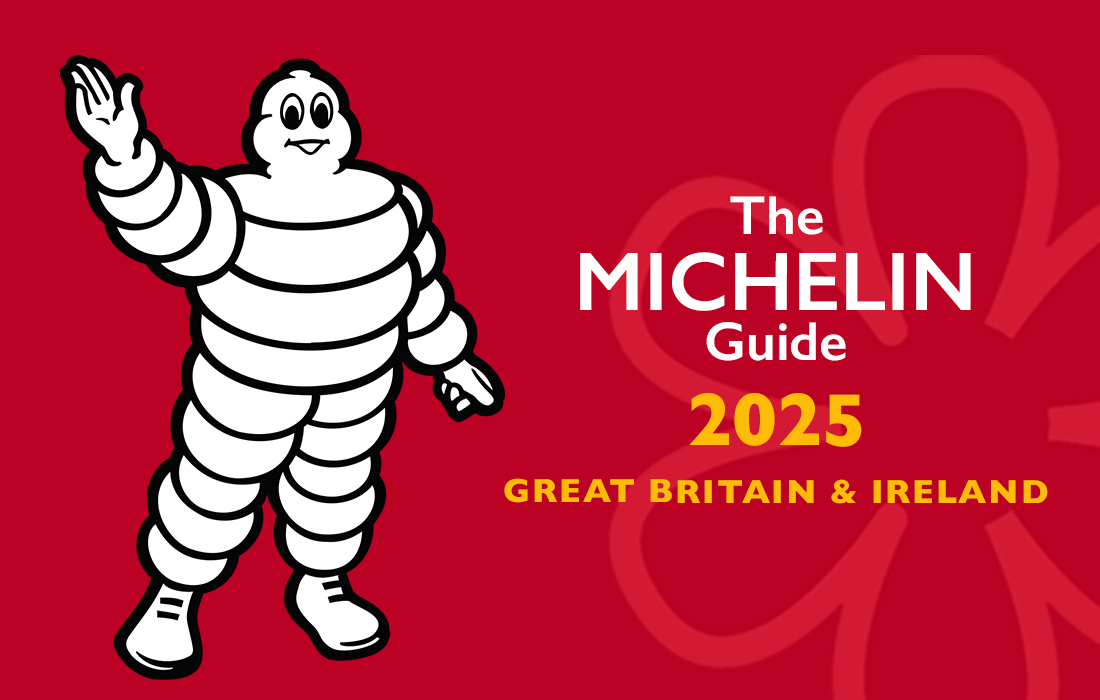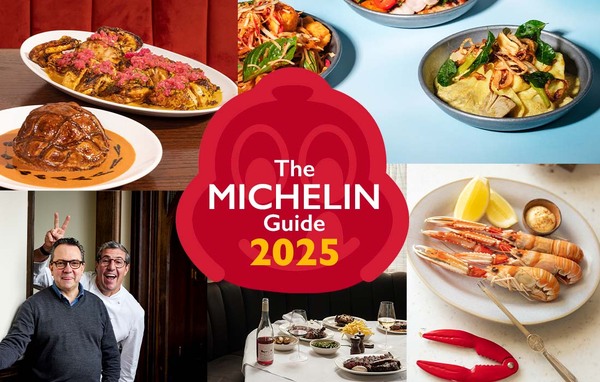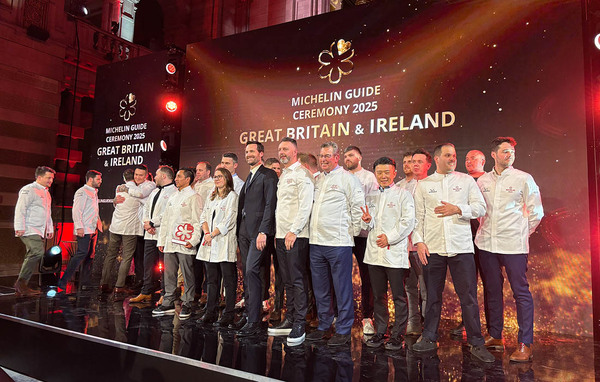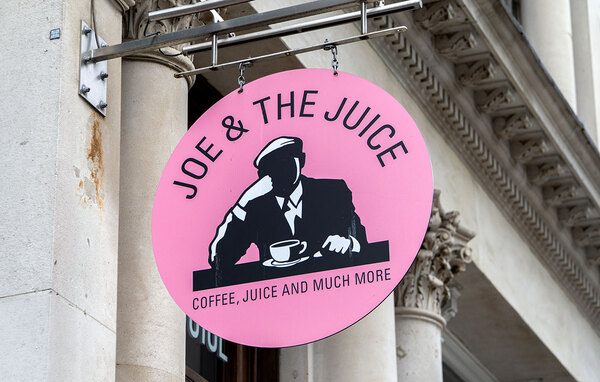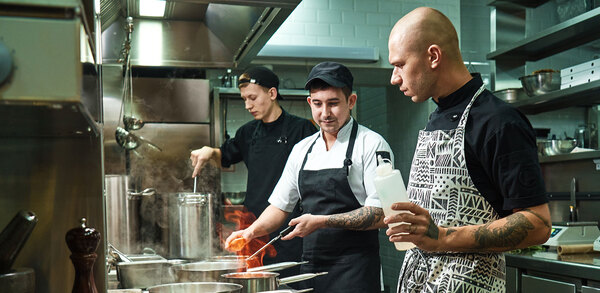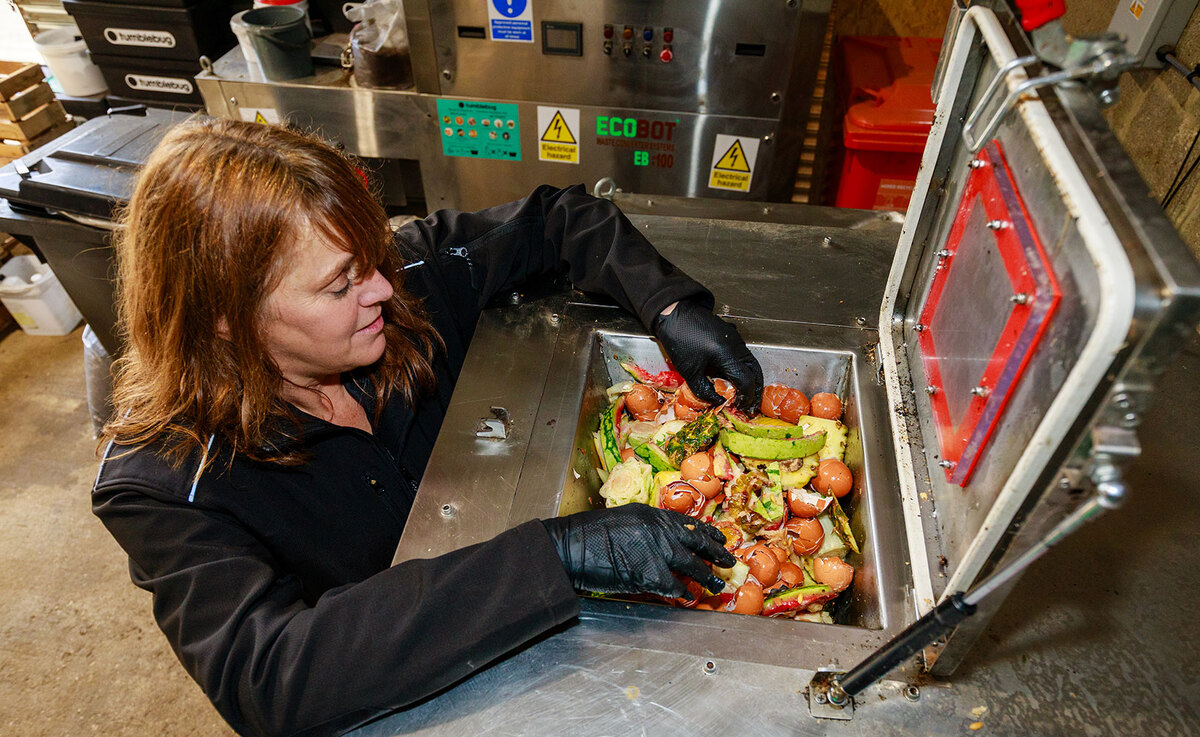Clean sweep: products for a professional cleaning regime
Keeping your venue clean is paramount for customer satisfaction. Angela Frewin looks at the latest kit to support spotlessness
“Across foodservice and hospitality venues, the customer experience is paramount. It is incredibly important that venues maintain a clean and hygienic appearance, from lobbies to lavatories, to instil customer confidence and satisfaction,” declares Jason Tallamy, global brand director at Clean Zero, 2San’s sustainable, chemical-free cleaning arm.
The pandemic’s heightened hygiene measures also heightened customer expectations, so operators grappling with an uncertain economy, staffing shortages, and spiralling food and energy costs are looking to save time and money without lowering standards. That five-star review can be scuppered by the smallest slip-up – not just in obvious spaces but in often overlooked high-traffic touchpoints such as light and lift switches, doors, handles, railings, handwash soap dispensers, menus, remote controls and touchscreens.
“It’s incredibly important to make these areas a priority for regular cleaning, particularly as these key areas are what consumers will look to when judging the cleanliness of a venue,” stresses Tallamy. “One perceived ‘unclean’ surface could impact their entire perception of a venue’s cleanliness.”
A standard operating procedure that aligns with peak and off-peak business can instil efficiency and consistency. “It is important to develop comprehensive cleaning protocols for each area and to be specific about tasks, cleaning frequencies and the products to be used,” advises Nick Winstone, managing director and co-founder of BioVate Hygienics. “It is good practice to assign specific cleaning tasks to different staff members and rotate their responsibilities periodically to prevent burnout.” Cross-training also shock-proofs peak periods and staff shortfalls, adds Mark Jankovich, chief executive and founder of Delphis Eco.
Winstone recommends colour-coded cloths, mops and buckets to prevent cross-contamination between surfaces, easily accessible centralised cleaning supply stations and quick-response kits with cleaners, cloths and gloves. Forbes Group’s mini housekeeping cart is proving popular, reports marketing executive Annette Clubley, as it allows unobtrusive cleaning between events and quicker turnaround times in bedrooms. Covered in wipe-clean nylon with a retractable handle, the nifty trolley can hold up 25kg of supplies.
Streamlined sanitation
Many operators are harnessing technology to streamline cleaning for both seasoned and new staff, remove paperwork and improve visibility. Amy Dignon, head of Access Hospitality’s app Trail, says its hospitality checklist will “guide your staff on what to do and when”, with the tools to get tasks done quickly and easily.
While basic cleaning requires detergents or degreasers to remove waste, and grease and disinfectants to kill pathogens, multi-surface products are being touted as a time-, cost- and storage-saving route that won’t compromise hygiene. “Professionals should opt for cleaning products that can be used around the hotel or restaurant, ready to be sprayed onto eating surfaces, kitchen appliances, chairs, upholstery and more,” advises Olivia Young, product development scientist at Astonish.
Certified by Cruelty Free International and the Vegan Society, Astonish is a pioneer of ethical cleaning sprays, pastes and disinfectants. Young notes: “In addition to more practical, multi-purpose cleaning solutions, there has been a growth of ethical cleaning products within the hospitality profession.”
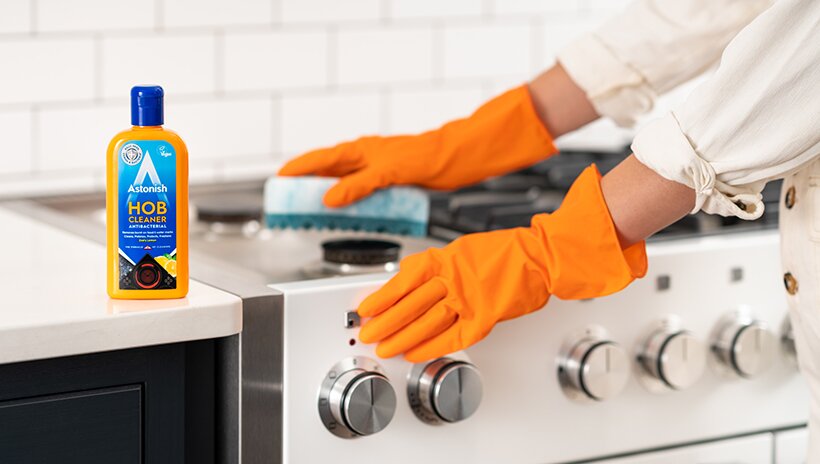
Green clean
Sustainability and eco-friendliness remain high-priority issues and the pandemic’s increased use of caustic and toxic cleaning chemicals have heightened concerns about their toll on environmental and human health, explains Winstone: “Harsh chemicals can lead to water and soil pollution, harm aquatic ecosystems, and potentially result in health issues for cleaning staff and people in sanitised spaces.” Their faint, sticky residues, adds Tallamy, quickly attract dirt and dust.
Eco-cleaners lessen COSHH (Control of Substances Hazardous to Health) implications to operators and their effectiveness has improved markedly in recent years. Jankovich boasts that Delphis Eco – the first UK manufacturer to win EU Ecolabel accreditation for its plant-based, sustainably-packaging cleaning products – “continually outperforms traditional competitors”. Dosing systems for its five-litre anti-bacterial sanitiser, multi-purpose cleaner and washroom cleaner plus 700ml refillable bottles for all lines ensure cost-efficient use and reduced packaging.
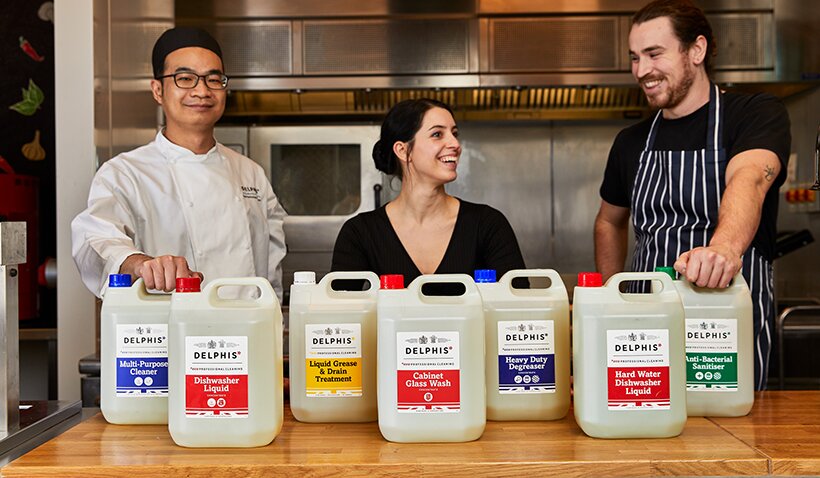
2San’s innovative Clean Zero – dispensed into refillable containers – is water that has been re-engineered via a seven-stage filtration system that can remove 99% of bacteria from all-water-washable surfaces, including fabrics.
Recent biotech-based eco- and human-friendly cleaning solutions that harness probiotic bacteria, enzymes, and plant derivatives to zap dirt and pathogens can be more effective than traditional solutions, claims James Naylor, head of sales at BioHygiene, Biological Preparations’ sustainable cleaning brand.
“For example, our products offer deeper cleaning action than many traditional products in hard-to-reach areas such as in cracks and grouting,” says Nayler. “This is due to our bacteria’s ability to colonise and penetrate areas that traditional chemicals cannot reach.” They clean without damaging or dulling surfaces and reduce the use of carbon (by 90%), plastics (50%) and storage (45%).
This year, newcomer BioVate Hygienics launched one of the world’s first plastic-free paper bottles for commercial cleaning with its UK-made sustainable, carbon-neutral biotech cleaning range, Zero Compromise. Made from vegetable waste fibre, the bottle is fortified on the outside with a water-resistant seaweed-extract infusion and inside by a plant sap latex bio-liner.
“The new products are all multi-tasking, taking care of 99% of cleaning tasks within a cleaning environment,” says Winstone. The 500ml ultra-concentrated floor and wall degreasers and washroom and multi-purpose cleaners fill up to 250 spray bottles.
BioVate also helped Sybron develop its first own brand, SyBio, a line of highly concentrated, biotech solutions (claimed to pack 30 times more actives than competitors) that clean, disinfect and protect surfaces against dirt and pathogens for 30 days.
“Our objective is to deliver environmentally friendly products that provide safer applications and improved performance with reduced costs,” explains sales and marketing director, George Mason. “Consistency is key, which is why we use dispensing systems. SyBio’s reduced range of multi-purpose concentrates slashes plastic usage, storage needs and dosage levels.”
Smell of success
“At any venue, first impressions count, and unpleasant odours are usually a clear indication that premises are not clean,” says P-Wave marketing manager Mark Wintle. He believes washroom toilets, which are “often the first or last place to be visited at any venue”, present “one of the most important opportunities to give visitors and staff a positive experience”.
Foul odours result from poor plumbing and lack of maintenance or mould, mildew and bacteria around grouting, toilets and sinks, but Wintle notes “in urinals it is the minute-by-minute usage that can cause the biggest problem”.
Slanted-bristle technology on both sides of P-Wave’s recyclable and biodegradable Slant6 30-day urinal screens prevent random splashes, and the mats are armed with a choice of six powerful, long-lasting fragrances plus beneficial bacteria to deodorise the drains below.
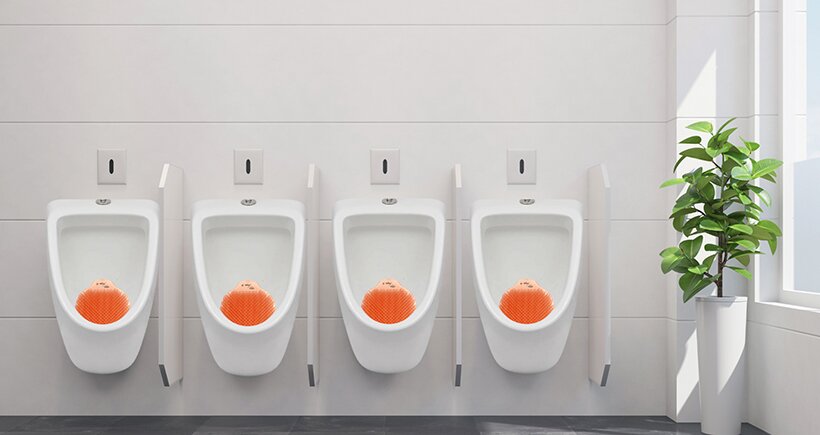
While the provision of guest hand sanitisers looks to be a lasting legacy of the pandemic, Jonny Green, academic lead at the Safer Food Group, expresses surprise that “the pandemic has not left a raft of improved cleaning tech in its wake”. However, the new restrictions on single-use plastics – which encourage operators to accept customers’ containers for takeaway foods – could spur some lasting innovation, he conjectures: “Could we see a development in UV technology that provides a quick, effective method of sanitising take-away tubs for reuse?”
Pest proofing
Good kitchen cleaning and hygiene are key to curbing food contamination (and wastage) by disease-bearing pests, says Sophie Thorogood, training manager at Pelsis Group.
Cleaning as you go, removing residues and crumbs and correctly disposing of waste food will help deter pest invasions that can compromise customer safety, food safety regulations and reputation. As Thorogood points out, “Pests do not need large volumes of food. Mice can survive on 3g of food a day, while German cockroaches can live on as little as 0.05g!”
“Mice,” adds Thorogood, “can fit through gaps bigger than 5mm” so entry points such as air vents, cracks in brickwork, and gaps under doors need to be proofed. Delivered goods should be scrutinised as, she continues, “Beetles and moths may be brought in on foods such as grains, dried fruit and spices, and mice have been known to travel on pallets of food.”
Kitchen compliance
“Cleanliness and hygiene can make or break an establishment. It has a direct impact on food sanitation and compliance with legislation. It also plays a major role in the awarding of food hygiene ratings,” declares Stephen Lynch, commercial director at commercial cleaner Cleanology. Unlike other sectors, kitchens demand regular deep cleaning – preferably every day, says Lynch, whose dream kitchen has wheeled units and appliances for total accessibility.
The near chemical-free group favours steam cleaners and probiotic biotech solutions that won’t contaminate food and uses intelligent software to monitor cleanliness. It was the first in Europe to develop its own portion-controlled sachets of biological cleaning solution to curb over-use, saving more than 16,000 litres of water each year and cutting PET plastic bottle use from 21,600 to 600.
Green urges kitchen staff to combat cross-contamination of food by cleaning surfaces, utensils, equipment and hands between each task and cleaning as they go, paying special attention to “blind spots” for pathogen-nurturing food and liquid residues such as tin openers, food mixer safety guards, handwash basins, vacuum-pack machines and wet bains-marie. He advises sanitising touch points such as doors, handles and fridges every one or two hours and deep cleaning beneath and inside cupboards and behind equipment weekly.
Programmable self-cleaning appliances such as Rational’s HACCP-compliant combi-steamers will streamline cleaning while slashing cleaner and water consumption, argues CFSP UK marketing director Adam Knights. Rational’s iCombi Pro has a 12-minute interim clean option, while the iVario Pro can be cleaned in just five minutes and save up to two hours a day. Martin Dagnall, head of technical training at Parts Town UK, recommends manufacturers’ OEM cleaners for hardworking appliances such as cookers and warewashers as they are designed to help them work efficiently while protecting components for a longer lifespan.
Suppliers
2San
www.2san.com or www.cleanzero.
Astonish
Biological Preparations
www.biologicalpreparations.com/biohygiene
BioVate Hygienics
(www.biovatehygienics.com)[www.biovatehygienics.com/]
Cleanology
(www.cleanology.com/services/commercial-cleaning)[cleanology.com/services/commercial-cleaning/}
Delphis Eco
(www.delphiseco.com)[delphiseco.com/]
Forbes Group
(www.forbesgroup.eu)[www.forbesgroup.eu/]
Parts Town UK
(www.partstown.co.uk)[www.partstown.co.uk/}
Pelsis Group
(www.pelsis.com)[www.pelsis.com/}
P-Wave
(www.p-wave.co.uk/product/slant-6)[www.p-wave.co.uk/product/slant-6]
Rational UK
(www.rational-online.com/en_gb/home)[www.rational-online.com/en_gb/home/}
Safer Food Group
(www.thesaferfoodgroup.com)[www.thesaferfoodgroup.com/]
Sybron
(www.sybron.co.uk/sybio)[www.sybron.co.uk/sybio/]
Trail App (Access Hospitality)
(www.trailapp.com)[trailapp.com/]



